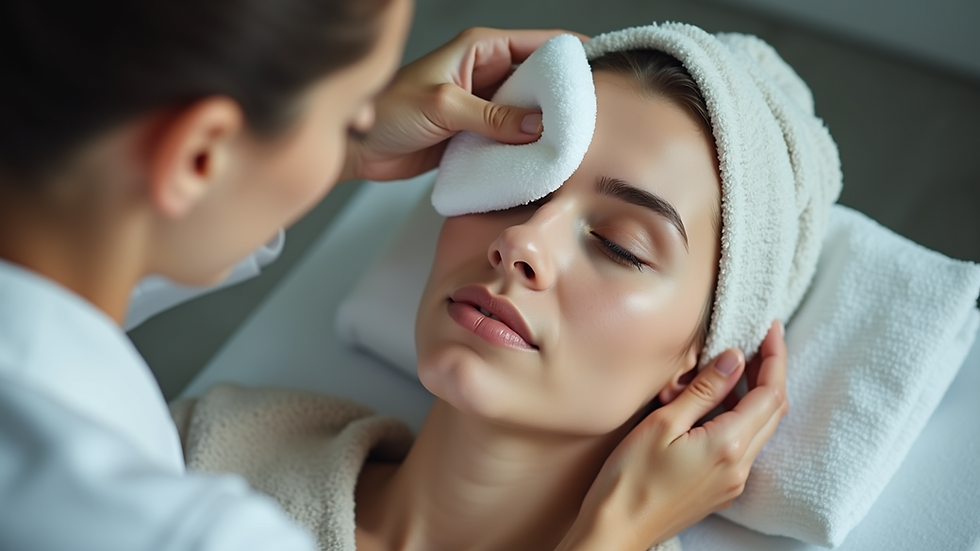How Stress Impacts Your Head and Ways to Relieve It
- Sep 23, 2025
- 4 min read
Stress is a common part of life, but when it becomes overwhelming, it can seriously affect your health, especially your head. Many people experience headaches, tension, and discomfort when stressed. Understanding how stress impacts your head and learning effective stress relief techniques can help you manage these symptoms and improve your overall well-being.
Understanding the Connection Between Stress and Your Head
Stress triggers a complex response in your body. When you feel stressed, your brain signals the release of hormones like cortisol and adrenaline. These hormones prepare your body for a "fight or flight" response, increasing your heart rate and muscle tension. Unfortunately, this tension often accumulates in the muscles around your head, neck, and shoulders, leading to headaches and discomfort.
Stress can also affect your nervous system, making your brain more sensitive to pain signals. This heightened sensitivity can cause or worsen headaches. Additionally, stress may disrupt your sleep patterns, reduce your ability to concentrate, and increase feelings of anxiety, all of which can contribute to head pain.
Common types of headaches linked to stress include tension headaches and migraines. Tension headaches feel like a tight band around your head, while migraines are more intense and may include nausea and sensitivity to light or sound.

Effective Stress Relief Techniques to Ease Head Pain
Managing stress effectively is key to reducing headaches and improving your quality of life. Here are some practical stress relief methods that can help ease head pain:
Deep Breathing Exercises: Taking slow, deep breaths helps calm your nervous system and reduce muscle tension. Try inhaling deeply through your nose for a count of four, holding for four, and exhaling through your mouth for four.
Physical Activity: Regular exercise releases endorphins, natural painkillers that improve mood and reduce stress. Even a short walk or gentle yoga can make a difference.
Mindfulness and Meditation: Practicing mindfulness helps you stay present and reduces anxiety. Meditation can lower cortisol levels and promote relaxation.
Adequate Sleep: Prioritize getting 7-9 hours of quality sleep each night. Good sleep helps your body recover from stress and reduces headache frequency.
Hydration and Nutrition: Dehydration and poor diet can worsen headaches. Drink plenty of water and eat balanced meals rich in fruits, vegetables, and whole grains.
Limit Caffeine and Alcohol: Both can trigger or worsen headaches in some people. Monitor your intake and adjust accordingly.
Create a Relaxing Environment: Use calming scents like lavender, listen to soothing music, or take a warm bath to help your body unwind.
Implementing these techniques regularly can significantly reduce the impact of stress on your head and overall health.

How do you get rid of a stress headache?
When a stress headache strikes, quick relief is essential. Here are some effective ways to get rid of a stress headache:
Apply a Cold or Warm Compress: Place a cold pack on your forehead or a warm towel on your neck to relax tense muscles and reduce pain.
Practice Progressive Muscle Relaxation: Tense and then slowly release different muscle groups, starting from your feet and moving up to your head.
Massage: Gently massage your temples, neck, and shoulders to improve blood flow and ease muscle tightness.
Over-the-Counter Pain Relievers: Medications like ibuprofen or acetaminophen can help, but use them sparingly and follow the recommended dosage.
Take Breaks from Screens: Prolonged screen time can worsen headaches. Look away every 20 minutes and focus on distant objects.
Stay Hydrated: Drink water to prevent dehydration, a common headache trigger.
Practice Deep Breathing or Meditation: These techniques can quickly reduce stress and headache intensity.
If headaches persist or worsen, consider consulting a healthcare professional for further evaluation and treatment.

Recognizing When Stress-Related Headaches Need Medical Attention
While many headaches caused by stress can be managed at home, some require professional care. If you experience any of the following, seek medical advice:
Headaches that are sudden, severe, or different from your usual pattern
Headaches accompanied by vision changes, weakness, or difficulty speaking
Headaches that worsen despite treatment
Frequent headaches that interfere with daily activities
Understanding the difference between common stress headaches and more serious conditions is important. For more information on stress-related headaches, including symptoms and treatment options, visit the linked resource.
Lifestyle Changes to Prevent Stress and Protect Your Head
Prevention is always better than cure. Making lifestyle changes can help you reduce stress and protect your head from pain:
Set Realistic Goals: Avoid overloading yourself with tasks. Break big projects into smaller, manageable steps.
Establish a Routine: Consistent daily habits can reduce uncertainty and stress.
Stay Connected: Social support from friends and family helps buffer stress.
Limit Exposure to Stressors: Identify and minimize triggers where possible.
Practice Gratitude: Focusing on positive aspects of life can improve your mood and resilience.
Seek Professional Help: Therapy or counseling can provide tools to manage stress effectively.
By adopting these habits, you can create a healthier, more balanced lifestyle that reduces the likelihood of stress-induced headaches.

Stress impacts your head in many ways, but with the right knowledge and tools, you can manage and relieve it effectively. Incorporate these strategies into your daily life to enjoy better health and a clearer mind.


Comments